Blinken urges Hamas to accept new ‘extraordinarily generous’ ceasefire proposal
The US secretary of state is on his seventh visit to the region since the Israel-Hamas war started in October.

The United States has stepped up pressure for a ceasefire deal in Gaza as the secretary of state said a new proposal had been put to Hamas, whose officials were in Cairo talking to Egyptian mediators.
It came as Israeli air strikes killed 26 people in Gaza’s southern town of Rafah, according to hospital records.
US secretary of state Antony Blinken, ahead of a new visit to Israel this week, urged Hamas to accept the latest proposal, calling it “extraordinarily generous” on the part of Israel.
The terms were not made public. But according to an Egyptian official and Israeli media, Israel has softened its position, lowering the number of hostages it demands that Hamas free during the initial six-week phase of the ceasefire in return for the release of hundreds of Palestinians from Israeli prisons.
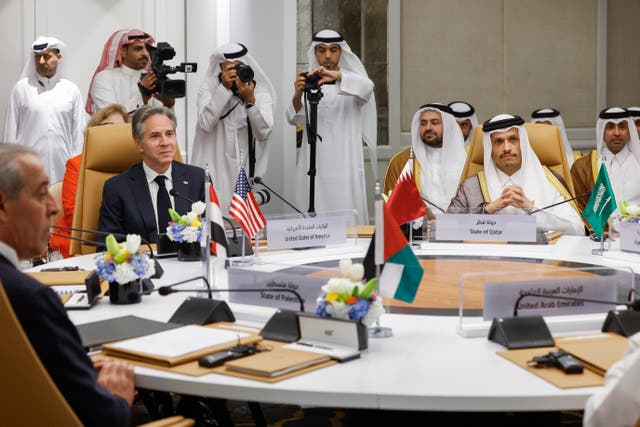
Hamas has demanded assurances that an eventual release of all hostages will bring a complete end to Israel’s nearly seven-month assault in Gaza and a withdrawal of its troops from the devastated territory.
Israel has offered only an extended pause, vowing to resume its offensive once it is over. The issue has repeatedly obstructed efforts by US, Egyptian and Qatari mediators during months of talks.
Some Israeli commentators depicted Israel as at a crossroads: Go for a deal with a potential end to the war, bringing benefits that could include normalisation of ties with Saudi Arabia, or push ahead with plans including an attack on Rafah in the hope of crushing Hamas and risk international isolation.
Israel’s closest ally, the United States, and others have repeatedly warned against an offensive on Rafah, saying it would bring a surge in casualties and worsen a humanitarian catastrophe. More than one million Palestinians have sought shelter in Rafah after fleeing fighting elsewhere.
Israel’s offensive in Gaza has killed more than 34,000 people.
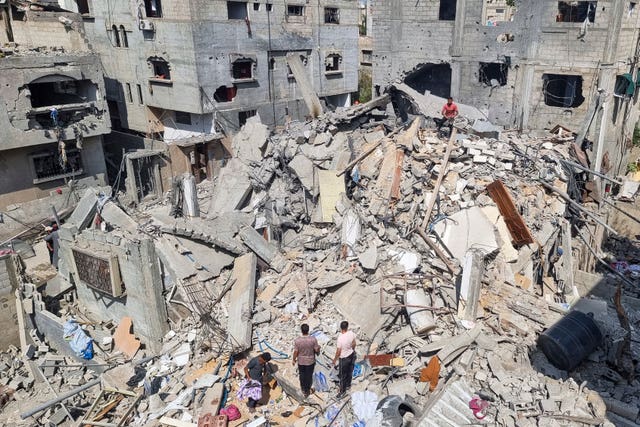
“Everyone was sleeping in their beds,” said Mahmoud Abu Taha, whose cousin was killed with his wife and their year-old baby in one house where at least 10 died. “They have nothing to do with anything, all of them are girls and women.”
Egypt has stepped up mediation efforts for a ceasefire deal in hopes of averting an Israeli ground assault on Rafah, which sits on Gaza’s border with Egypt.
An Egyptian official said Israel has lowered the number of hostages it wants freed in the first stage, down from earlier demands for 40. He did not specify the new number.
Israeli media said it now seeks the release of 33 hostages in return for the release of some 900 Palestinian prisoners. Hamas is believed to hold around 100 Israelis in Gaza.
Israel has also shown flexibility on allowing residents to return to northern Gaza, the Egyptian official said.
There was no immediate comment from Hamas or Israeli officials.
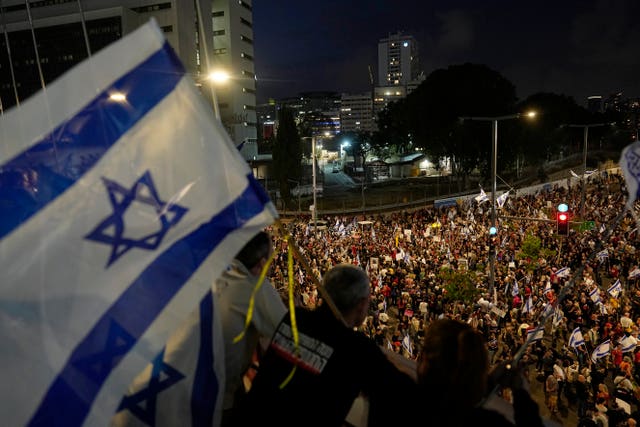
His government could also be threatened if he agrees to a deal, since hardline members of his Cabinet demand an attack on Rafah.
At the same time, Mr Netanyahu faces pressure from the families of hostages still in captivity who are demanding a deal for their release.
On Monday, the families of two hostages – Keith Siegel and Omri Miran – urged both sides to reach an agreement, days after Hamas released a video showing the two men.
Israeli officials, meanwhile, appeared increasingly concerned that the International Criminal Court (ICC) may issue arrest warrants against the country’s leaders.
It was not clear what sparked the Israeli concerns. The ICC launched a probe three years ago into possible war crimes committed by Israel and Palestinian militants going back to the 2014 Israel-Hamas war.
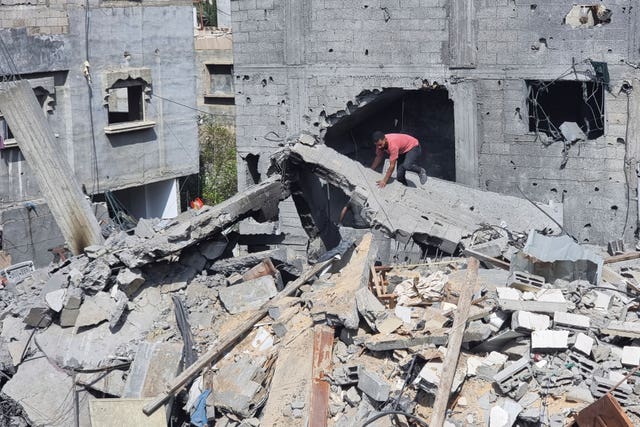
There was no comment from the court on Monday, and it has given no indication warrants in the case are imminent.
But Israel’s Foreign Ministry said late Sunday that it had informed Israeli missions of “rumours” that warrants might be issued against senior political and military officials.
Mr Netanyahu said on Friday that Israel “will never accept any attempt by the ICC to undermine its inherent right of self-defence”.
Neither Israel nor the United States accept the ICC’s jurisdiction, but any warrants could put Israeli officials at risk of arrest in other countries. They would also serve as a major rebuke of Israel’s actions at a time when pro-Palestinian protests have spread across US college campuses.
The International Court of Justice, a separate body, is investigating whether Israel has committed acts of genocide in the ongoing war in Gaza, with any ruling expected to take years. Israel has rejected allegations of wrongdoing and accused both international courts of bias.
In the Hamas-led attack on October 7 that triggered the war, militants stormed through army bases and farming communities across southern Israel, killing some 1,200 people, mostly civilians, and taking around 250 hostages.
Israel’s massive air, sea and ground offensive in Gaza has killed at least 34,488 Palestinians, mostly women and children, according to Gaza’s Health Ministry, which does not distinguish between civilians and combatants in its tally.
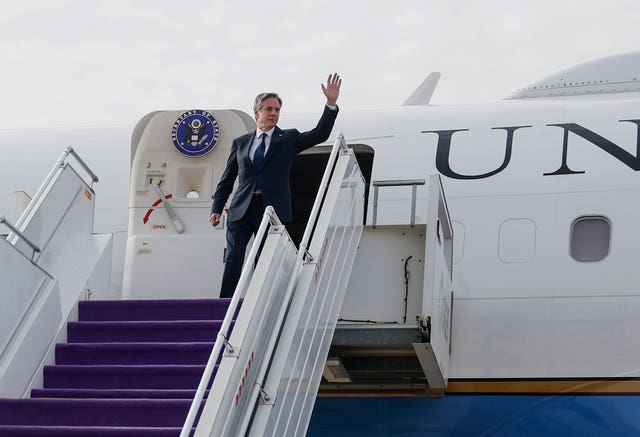
The war has driven around 80% of Gaza’s population of 2.3 million from their homes, caused vast destruction in several towns and cities, and pushed northern Gaza to the brink of famine.
Meanwhile, Mr Blinken said on Monday that Israel must still do more to increase the flow of humanitarian aid into the besieged Gaza Strip and that he would use his Middle East trip – his seventh to the region since the Israel-Hamas war started in October – to press that case with Israeli leaders.
Speaking at events in Saudi Arabia’s capital, Mr Blinken said the best way to ease the humanitarian catastrophe in Gaza would be to conclude an elusive ceasefire agreement, which also would release Israeli hostages held by Hamas.
He said safety for humanitarian relief workers must be improved and that there is a focus on ensuring the aid is making a proper impact for Palestinian civilians.
Scores of relief workers have been killed since the conflict began, and an Israeli attack on a World Central Kitchen convoy in Gaza this month that killed seven aid workers only highlighted the dangers and difficulties of protecting them. Israel has said the strike was a mistake and has disciplined officials involved.
World Central Kitchen said it would resume operations in Gaza on Monday after a four-week suspension.





